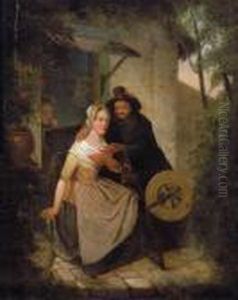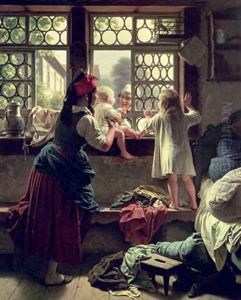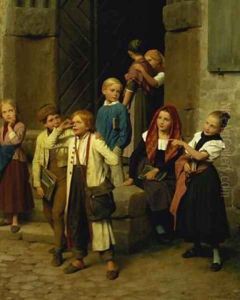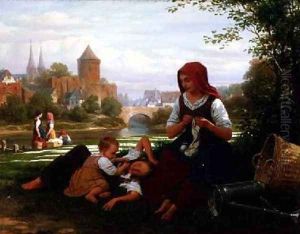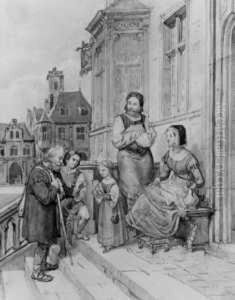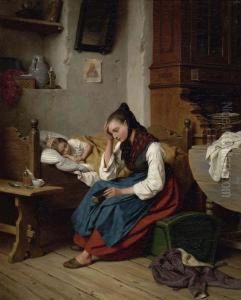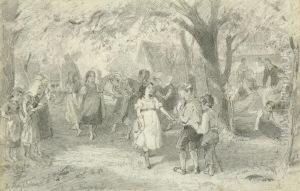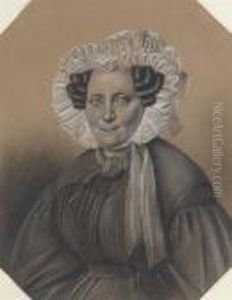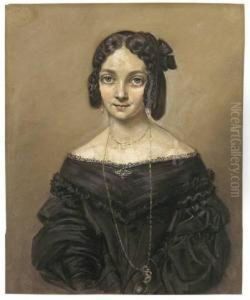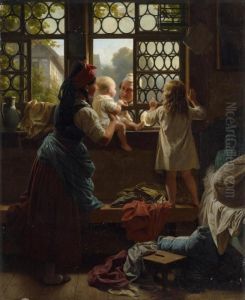Friedrich Edouard Meyerheim Paintings
Friedrich Eduard Meyerheim was a distinguished German painter, born on July 17, 1808, in Danzig (now Gdańsk, Poland), which was then part of Prussia. He hailed from a family deeply entrenched in the arts, with his father, Friedrich Wilhelm Meyerheim, also being a notable painter. This artistic environment profoundly influenced Meyerheim, nurturing his developing talent from a young age.
Meyerheim's artistic journey began under the guidance of his father, from whom he received his initial training. His early exposure to art was further enriched by his studies at the Academy of Arts in Berlin. Here, Meyerheim honed his skills and absorbed the influences of the burgeoning German Romantic movement, which would later be reflected in his works.
Throughout his career, Meyerheim specialized in genre paintings, depicting scenes of everyday life with a remarkable attention to detail and a deep sense of empathy for his subjects. His works often portrayed the rural peasantry of Germany, capturing their daily activities with both realism and idealism. Meyerheim's ability to imbue his paintings with narrative depth and emotional resonance quickly earned him acclaim.
In addition to his genre scenes, Meyerheim also produced a number of historical paintings and was particularly interested in the depiction of scenes from the Reformation. His approach to these subjects was characterized by a meticulous attention to historical accuracy and a vivid portrayal of character and mood.
Meyerheim's contributions to art were recognized with numerous awards throughout his lifetime. He became a member of the Berlin Academy and was celebrated in artistic circles across Germany and beyond. Despite his success, Meyerheim remained committed to his artistic vision, continuously striving to capture the essence of his subjects with integrity and compassion.
Friedrich Eduard Meyerheim's legacy as a painter is marked by his dedication to portraying the human condition with honesty and warmth. His works continue to be admired for their narrative depth, technical precision, and emotive power. Meyerheim passed away on August 15, 1879, in Berlin, leaving behind a body of work that continues to inspire and captivate audiences around the world.
